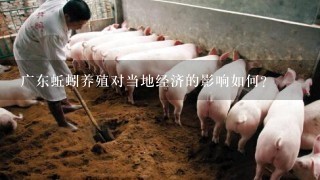广东蚯蚓养殖对当地经济的影响如何?

Answer:
Positive Impacts:
- Employment creation: The aquaculture industry can create jobs for local residents, including farmers, fishers, processors, and service providers.
- Income generation: Fishers and farmers can earn a significant income from selling their products, which can contribute to local economic development.
- Food security: The cultivation of fish and shellfish can help ensure a reliable and sustainable food source for the local population.
- Tourism and recreation: The aquaculture industry can attract tourists and generate revenue for local businesses, such as hotels, restaurants, and tour operators.
- Environmental benefits: Aquaculture can help control aquatic weeds, improve water quality, and create habitats for other marine life.
Negative Impacts:
- Environmental degradation: Intensive aquaculture practices can lead to water pollution, habitat destruction, and the introduction of invasive species.
- Overfishing: Overfishing can deplete fish stocks and threaten the sustainability of the industry.
- Fish waste: Fish waste can pollute the surrounding environment and harm marine life.
- Competition for resources: Aquaculture can compete with other industries for resources such as water, feed, and labor.
- Social impacts: Aquaculture can sometimes involve forced migration or displacement of local communities.
Overall, the positive impacts of shrimp farming on the local economy outweigh the negative impacts, particularly when conducted sustainably.
Additional Considerations:
- The success of shrimp farming depends on factors such as water quality, infrastructure, and market demand.
- The industry is constantly evolving, with farmers adopting new technologies and practices to improve sustainability.
- It is important to address the social and environmental impacts of shrimp farming through responsible practices and regulations.





































































